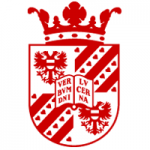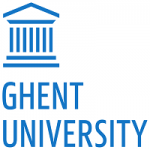项目介绍
Functieomschrijving
Fully funded PhD position in Medieval Studies at the Faculty of Arts, University of Groningen (start date: February 2025) in the project “New Approaches to Medieval Travel: Cultural Interactions and Religions of the Fifteenth-Century in Textual and Material Sources”.
This PhD project offers a unique opportunity to work in an international, diverse environment and to acquire valuable research experience at a top-ranked European university. The successful candidate will have the opportunity to develop their academic writing skills, support outreach activities in the Netherlands and abroad, undertake archival work and gain teaching experience. The candidate will be embedded in the Chair Group of Medieval English Literature and Culture.
New Approaches to Medieval Travel: Cultural Interactions, Identity and Devotion in Textual and Material Sources
In fifteenth-century Europe, one of the most daunting journeys one could undertake was to Jerusalem. Not only was the expedition costly, it was also perilous. Travellers faced threats from pirates, muggers, dangerous animals and the rapidly expanding Ottoman Empire. Fifteenth-century Europe was fascinated by those brave enough to face the trip and audiences eagerly read of their experiences. Despite this fascination, we have little surviving evidence of those that undertook the pilgrimage. The itinerant nature of pilgrims creates an unstable set of records, as travellers were less likely to leave behind documents in one location. Alongside this, the Reformation and world wars were responsible for the largescale destruction of medieval objects and archives. To counter this problem, this project analyses both texts and artefacts, sources that are rarely considered together in academic studies because they require different skills and methods of interpretation. Nevertheless, through an analysis of the texts that pilgrims wrote along with the objects that they acquired, this project reconstructs the travels of medieval pilgrims.
The Castilian Pero Tafur (d. c. 1484), the Englishman William Wey (d. 1476) and Anselm Adornes (d. 1483) from the Low Countries all travelled to Jerusalem in the fifteenth century, recorded their experiences through textual records and objects. Each departed from separate points and took different routes of travel, yet they all framed their narratives around the same points of interest. Their texts are concerned with recounting their experiences of relics and shrines, interactions they had with foreigners, the natural world and religious practices. Whether describing pilgrimage sites they visited, collecting souvenirs or building chapels upon their return home to display their holy objects, these pilgrims present a remarkably similar dual focus on texts and objects as part of the same mode of recording and memorialising their journeys.
This project will seek to conceptualise how texts and objects facilitate the memorialisation of human mobility. In addition, the project investigates how texts and objects reflect perceptions of foreign peoples and, in particular, the increased importance of the Turks and the Ottoman Empire. By investigating this history of travel, we not only stand to gain a greater understanding of the pilgrimage culture of late-medieval Europe, but also discover practical examples of travel that will facilitate future research. Through an investigation of the texts that pilgrims wrote alongside the objects they treasured, this study will engage with increasingly important themes in the humanities relating to mobility, the environment and global perspectives. Our work with manuscripts and artefacts reveals not only how susceptible historical narratives are to disruption, especially when archives are lost or suffer from material decay, but also how literary and art historical analysis can reconstruct narratives thought to be irretrievable.
The successful candidate will be asked to:
- Conduct research independently.
- Carry out archival research abroad, analysing texts and objects.
- Promote the project at academic conferences.
- Transform your research into publishable output.
- Teach in the departments of English and Art History.
Since its foundation in 1614, the University of Groningen has established an international reputation as a dynamic and innovative university offering high-quality teaching and research. Its 27,000 students are encouraged to develop their own individual talents through challenging study- and career paths. The University of Groningen is an international centre of knowledge: It belongs to the best research universities in Europe and is allied with prestigious partner universities and networks worldwide.
The Faculty of Arts is a large, dynamic faculty in the heart of the city of Groningen. It has more than 5000 students and 700 staff members, who are working at the frontiers of knowledge every day. The Faculty offers a wide range of degree programmes: 15 Bachelor’s programmes and over 35 Master’s specialisations. Our research, which is internationally widely acclaimed, covers Archaeology, Cultural Studies, History, International Relations, Language and Literary Studies, Linguistics and Media and Journalism Studies.
Functie-eisen
- A Research Master’s or Master’s degree in English, History or Medieval Studies.
- Excellent academic writing and speaking skills in English.
- The ability to read and translate medieval Latin.
- Training in medieval Latin palaeography and codicology.
- Knowledge of Dutch and/or Spanish is an advantage.
Arbeidsvoorwaarden
In accordance with the Collective Labour Agreement for Dutch Universities, the University of Groningen offers you:
- A salary of € 2.770 gross per month in the first year, up to a maximum of € 3.539 gross per month in the final year, based on a full-time position
- A holiday allowance of 8% gross annual income
- An 8.3% end-of-the-year allowance
- A temporary 1.0 FTE appointment for a specified period of four years. The candidate will first be appointed for twelve months. After six months, an assessment will take place of the candidate’s results and the progress of the PhD project, in order to decide whether employment will be continued.
- The PhD candidate is expected to conduct a total of 0.4 fte teaching spread over the second, third and fourth year of their appointment.
- Excellent work-life balance.
- Willingness to move and reside in the Netherlands.
The appointment will commence on 1 February 2025.
Sollicitatie
Applications should be made in English and contain the following materials:
- A cover letter (c. 1,500 words) explaining your motivation for applying, including your own interests and potential research ideas regarding the project.
- A curriculum vitae.
- Copies of BA and MA (if available) diplomas and transcripts of grades (highlighting training in medieval languages, palaeography and codicology).
- Copy of MA thesis or writing sample (a copy of an essay or other academic text that you feel best represents your work).
- Contact details of two academic referees (no letters of recommendation are needed for the application process)
Please send in your application as two PDF files (one for the MA thesis, and one for all other documents). You may apply for this position until Monday 19 August, 23:59 Dutch local time (CEST) / before 20 August 2024 by means of the application form (click on “Apply” below on the advertisement on the university website).
Interviews with selected candidates will be held between 2-6 September.
The University of Groningen strives to be a university in which students and staff are respected and feel at home, regardless of differences in background, experiences, perspectives, and identities. We believe that working on our core values of inclusion and equality are a joint responsibility and we are constructively working on creating a socially safe environment. Diversity among students and staff members enriches academic debate and contributes to the quality of our teaching and research. We therefore invite applicants from underrepresented groups in particular to apply. For more information, see also our diversity policy webpage: https://www.rug.nl/about-ug/policy-and-strategy/diversity-and-inclusion/
Our selection procedure follows the guidelines of the Recruitment code (NVP): https://www.nvp-hrnetwerk.nl/nl/sollicitatiecode and European Commission’s European Code of Conduct for recruitment of researchers: https://euraxess.ec.europa.eu/jobs/charter/code
We provide career services for partners of new faculty members moving to Groningen.
Unsolicited marketing is not appreciated.
Informatie
Voor informatie kunt u contact opnemen met:
Dr. Patrick Outhwaite (for information about the project), p.j.outhwaite@rug.nl
Dr. Jesús Rodríguez Viejo (for information about the project), j.rodriguez.viejo@rug.nl
Rachael Fletcher, Coordinator GSH, (for questions regarding the submission procedure), r.l.fletcher@rug.nl
联系方式
电话: +31 50 363 9111相关项目推荐
KD博士实时收录全球顶尖院校的博士项目,总有一个项目等着你!




